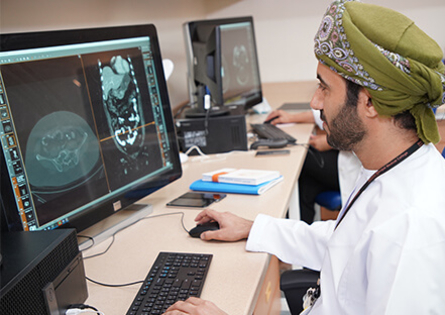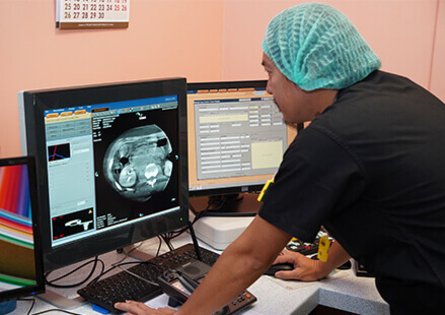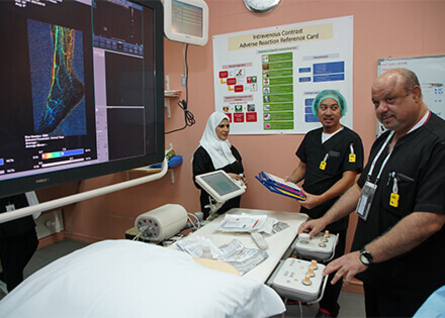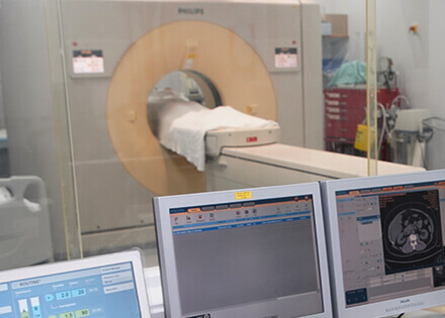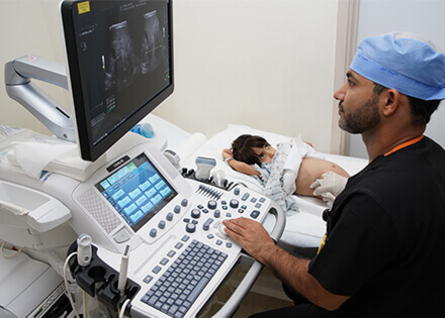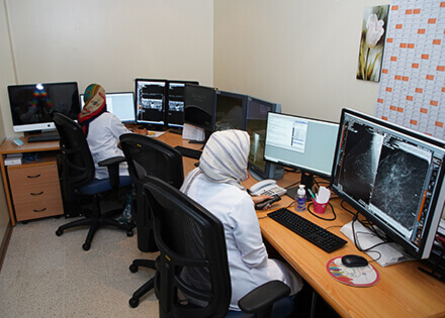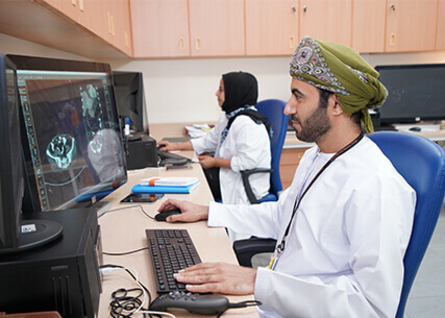Department of Magnetic Resonance
The radiology department represented in the magnetic resonance department contains the latest technology in the field of medical imaging in addition to the presence of doctors and radiographers who are distinguished in diagnostic imaging, as the department is equipped with two magnetic resonance imaging devices: the first with a power of 1.5 Tesla and the second with a power of 3 Tesla, both of the type Gi.
The purpose of the versatility is to obtain the advantages of both models, which will be of the greatest benefit to patients.
The Resonance Department provides the most important and accurate imaging services available, through the use of advanced imaging methods whose mission is to assist doctors in formulating the optimal medical care plan for patients.
The Department of Magnetic Imaging is an important and main center that serves a large group of inpatients, outpatients and patients referred from all hospitals in the Sultanate who need these advanced examinations to reach an accurate and correct diagnosis in order to obtain the best treatment methods.
The resonance department receives various medical cases from all branches of surgery and internal medicine in addition to the pediatric departments, as the department has all the necessary equipment to perform the various tests under anesthesia.
The department provides its services 24 hours a day to cover the needs of the hospital's emergency department, and all urgent examinations and requests from inpatient wards.
The department aims to continue providing the best medical diagnostic services and upgrading services to the best international levels.
